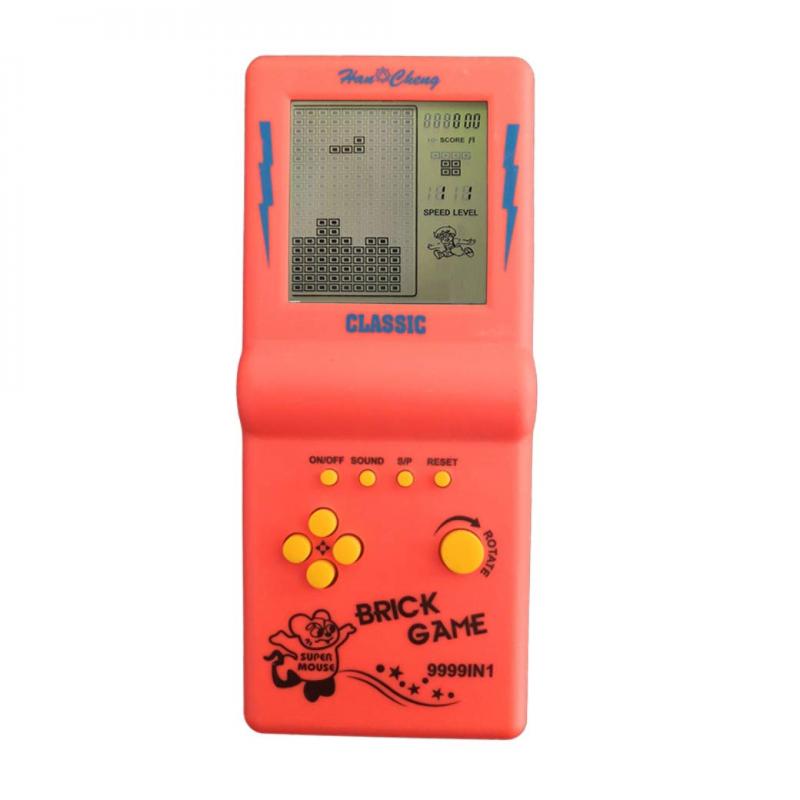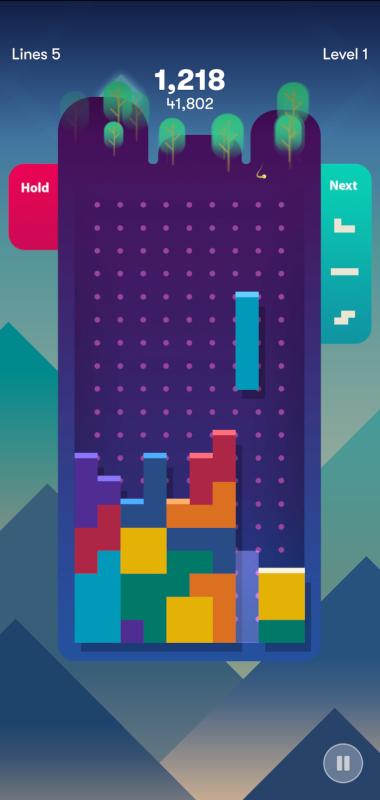I remember back in high school when someone snuck one of those ‘Brick Game’ handheld game console into our dorms. Man, did that thing get some usage. We played Tetris like our lives depended on it. While we enjoyed ourselves, this Tetris-fest came with a price- the dreams.

We played Tetris on a Brick Game like this one.
We started seeing images of Tetris pieces falling into place everywhere. This happened even when we were awake, a virtual Tetris game would appear in our minds and we would be forced to ‘play’ even when we didn’t have the Game Brick in hand.
It got a bit traumatic to be honest. Closing our eyes gave no relief. That only made the visuals more vivid. It doesn’t sound like that big of a deal but trust me, seeing those lines everywhere can mess with you. But of course that didn’t stop us from playing the game.
Turns out there’s a name for what we were going through, the Tetris effect. It is well documented. It happens when people “devote time and attention to an activity that it begins to pattern their thoughts, mental images, and dreams.”
It’s called the Tetris effect because that game is particularly bad in that regard. Apparently, just an hour of play results in many reporting vivid after-images of the game for up to days afterwards. If you played the game then you know what I’m talking about.
Colour vs black and white
The after-images seen depend on which game one plays. Those who played the colour version saw falling boxes in colour. My friends and I were plagued by black boxes.
Games are immersive and one cannot be passive while playing so you can kind of understand how they would be seared into the minds of players. Reality is, even television has this impact.
There are many people who report that they dream in black and white. In the 1940-1950s in the U.S, 71% of people questioned reported dreaming in black and white. The same study was done in 2001 and only 18% said they rarely saw colour in their dreams.
Psychologists have more or less ruled out the notion that those who dream in black and white lack creativity. It’s simply that those who were exposed to black and white TVs may end up dreaming in black and white.
I totally get that. I grew up watching colour TVs and have vivid and colourful dreams, except when they are Tetris dreams. Those are almost always in black and white. That’s despite the fact that I’ve played colour versions exclusively since high school.

The Tetris effect might be worth it
Many research studies have been done on the Tetris effect.
Apparently, playing Tetris leads to increased brain efficiency. MRIs showed that those who play saw no increase in energy expended as the game sped up and they had to make decisions faster. Non-Tetris players were chowing through glucose, trying to keep up.
There’s more. Playing Tetris for just 30 minutes a day leads to an enhancement in memory capacity. MRIs show that the gray matter in the brains of Tetris players thickened. Researchers say this can lead to cognitive development and enhanced memory capacity.
Then there are improvements in spatial skills. Playing Tetris leads to improvements in spatial perception, mental rotation and spatial visualization. These skills are useful in STEM fields and graphic design.
Another benefit is the prevention in the build up of traumatic memories. The pesky after-images can be used for good effect when people play the game following traumatic experiences. Researchers say Tetris changes the way sensory memories are formed post-trauma. The game will reduce the intensity and occurrence of traumatic reminders.
Avid gamers will know that some of these positives are not exclusive to Tetris.
Play Tetris
Am I saying play Tetris under your books in the prep room whilst your friends study? Yes. That’s what I’m saying but don’t listen to me. What I really want is for others to suffer through Tetris images like I do.
It’s always fascinating to look at how technology shapes our lives these days. Watching black and white TV leads to black and white dreams. That doesn’t sound like a big deal but what else is technology changing subtly or otherwise in our lives?
By now we all know that heavy social media use is linked with an increased risk for depression, anxiety and other nasty stuff. I wonder what else we take for granted that could be impacting our lives, for good or bad.
Also read:
Chinese children will now only be allowed to play games for 1 hour during holidays and weekends

12 comments
“We started seeing images of Tetris pieces falling into place everywhere”
😭I thought I was alone! I played that thing to death, to the point i’d see the bricks fall every time I blinked! I even moded it with a backlight and reversed the polarising filter so I could play it in the dark! Even when I slept, the phantom sound of a ‘line’ being made would startle me awake! My father started conducting raids on my bedroom to catch me in the act! You really have brought up a long buried trauma!!! I think was at the point of needing therapy😂
Covid downtime made rediscover ‘Brick Game’ as an app! It was such a nostalgia hit, but nothing quite beats that original hunk of plastic. Next time i’m home, i’ll dig it up for old times sake!
Shiet 😂, l remember going playing through different levels and speeds of that ‘dogde the traffic game’, all whilst starring at my room’s walls. I thought l was about to go cuckoo😂.
Tetris effect. Nice.
That was the other one, the traffic game. I haven’t played in years but I just played one game in my mind right now. I think we did really go cuckoo, just a little bit, but cuckoo nonetheless.
🤣 I knew there’s multitudes of us on that boat. We suffered for it but that didn’t stop us playing. When you say you were at the point of needing therapy I feel that. I seriously thought I would never be right in the mind again.
I agree, the apps don’t compare to the proper physical Brick Game experience. Dig it up and re-traumatise yourself for some brain health benefits.
Mashaya zveku poster idiots
Sorry you didn’t like the topic. Next one, I promise.
Do an article about starting a website hw much it cost Leonard.
Okay Jose. Will do that.
That’s very true, and recently I’ve been studying chart pattens of financial markets and all i am seeing in my mind are those chart pattens
Crazy thing is even when it’s for something more meaningful you don’t appreciate the after-images. At the time you want a break from studying your brain starts feeding you candlestick patterns. I went through the financial chart trauma as well.
Honestly I feel like the benefits of playing chess outweigh the benefits of playing Tetris. It’s just my humble opinion
If a song plays repeatedly whilist you are asleep somehow you will struggle to get it out of your when you wake up